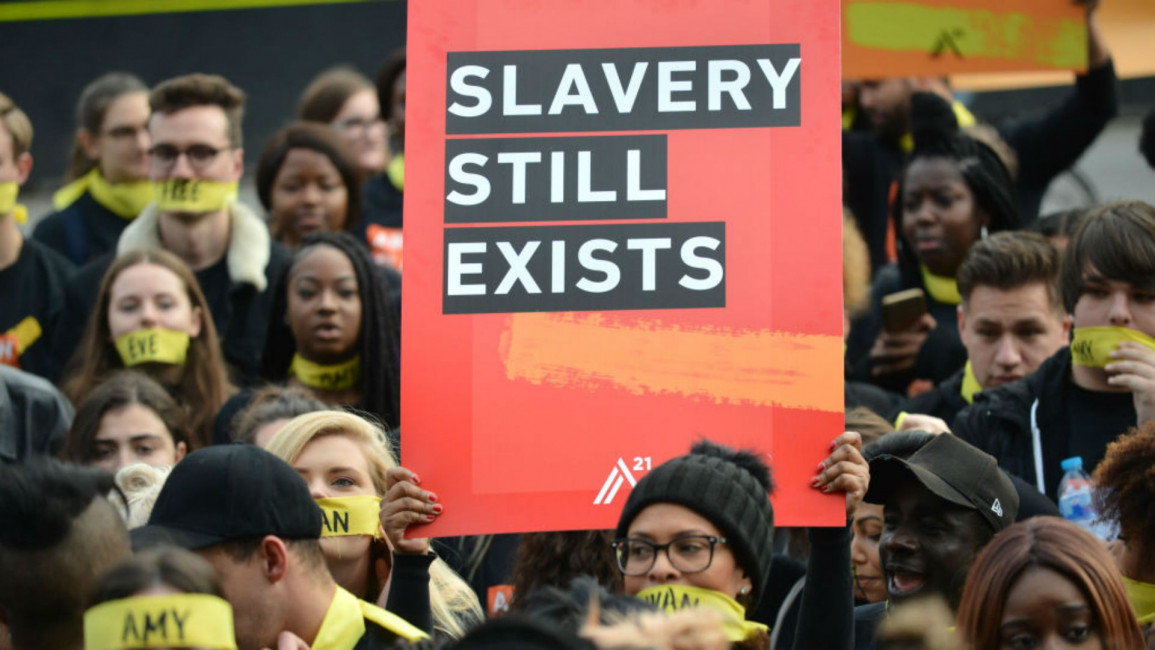
How UK immigration policy is making a marketplace for human traffickers
As news of yet another major case broke in April - 29 potential victims, reportedly Vietnamese, discovered in the back of a van in Devon - it is timely to ask this question.
Over the past decade, focus on this abuse has intensified, new legislation has been introduced and funding aimed at tackling it has increased exponentially. Yet victim numbers continue to rise; something clearly isn't working.
The detail on this particular Devon-based case hasn't yet been made public so we can't speculate on the specifics of it, but it can elucidate a crucial missing piece of the prevention puzzle.
That piece is the UK's restrictive immigration policy and how it enables modern slavery and human trafficking to thrive.
The sensationalist notion of the "modern slave" is somebody snatched from their home country and transported unwillingly to our shores to perform forced labour of some sort, sexual or otherwise.
But this is frequently incorrect. In fact, many survivors of this crime wanted to migrate originally - though of course not to be exploited.
 |
Victims have often travelled to the UK due to the promise of a job here, only to find on arrival that they have been deceived about the terms |  |
For example, analysis of the files of 75 Vietnamese victims of modern slavery in 2017 found that only two were kidnapped against their will.
As with all migrants, the remainder had a range of reasons for wishing to leave their country, including needing to leave problematic circumstances or to seek better economic prospects.
The Home Office implicitly acknowledged this aspect of modern slavery in its 2017 report, A Typology of Modern Slavery Offences in the UK. Several of the identified types recognise that victims have often travelled to the UK due to the promise of a job here, only to find on arrival that they have been deceived about the terms.
Twitter Post
|
Yet the government ignores this factor in both parliament and policy-making: In a recent response to a question about migrants crossing the English Channel to reach the UK illegally, Immigration Minister Caroline Nokes stated "it absolutely is people traffickers and organised crime gangs who are encouraging people to make this extremely perilous crossing".
This is disingenuous. If the UK had legal and safe pathways for people to enter and work in the UK, with access to labour rights and regularisation opportunities, the traffickers would not have a marketplace of at-risk individuals who are willing to migrate through irregular and/or dangerous channels.
Read more: It's high time our governments stopped normalising racism
A crucial point here is not only that many people want to move, but also that they will move. Harder borders and initiatives which try to discourage people from migrating don't work: If they did, we wouldn't have a population of undocumented people. Increasing geopolitical instability and climate breakdown are only going to make this truer.
A salient example of the failure of this type of policy approach comes from Spain which spent 168 million dollars between 1994 and 2005 on a high tech border control system called the Integrated System of External Vigilance (SIVE).
A complex system of sensors and interception units was meant to identify and apprehend boats bringing African migrants to the coasts of Andalucía and the Canary Islands.
It didn't work. The boats simply went faster or rerouted, only meaning that the journey was more dangerous for the people trying to migrate. Continuing her response in parliament, Nokes noted that the government is using aerial surveillance to address illegal Channel boat crossings; perhaps she would do well to learn from the Spanish experience.
 |
The UK's immigration policy is creating the perfect conditions for exploitation |  |
The UK has also tried to harden borders: Between 2016 and 2020, it will have spent $160 million on "state-of-the-art technology at the border".
In 2018, it was reported to have spent $196 million over the previous three years on border security around Calais, with spending more than doubling from 2014/15 to 2015/16.
Destitute migrants are well-recognised to be at high risk of human trafficking; preventing them from reaching the UK simply exacerbates this.
And it is not just at the border that the UK's immigration policy is creating the perfect conditions for exploitation.
The collection of policies known as the "hostile environment" prevents migrants who do not fit one of the proscribed immigration entry routes - biased towards the European (currently) or the wealthy - from accessing basic rights and needs, such as labour rights, healthcare, housing and so on.
 |
Harder borders and initiatives which try to discourage people from migrating don't work |  |
It operates in direct conflict with government's anti-slavery objectives by creating a shadow labour market of undocumented workers with no access to rights or justice.
This gives exploiters a ready supply of rights-deprived individuals, thoroughly undermining prevention aims.
There is much good work being done by some government departments and NGOs to try to tackle human trafficking.
But, until immigration policy is addressed, these activities are much like dressing superficial wounds on a diseased body. If the UK truly wants to prevent exploitation, it must allow safe and legal entry routes for migrants who need to come here and provide undocumented workers with access to rights and justice.
Emily Kenway is senior policy and communications advisor at Focus on Labour Exploitation (FLEX).
Follow her on Twitter:@emilykenway
This article was republished with permission from the Thomson Reuters Foundation.
Opinions expressed in this article remain those of the author and do not necessarily represent those of The New Arab.


![President Pezeshkian has denounced Israel's attacks on Lebanon [Getty]](/sites/default/files/styles/image_684x385/public/2173482924.jpeg?h=a5f2f23a&itok=q3evVtko)



 Follow the Middle East's top stories in English at The New Arab on Google News
Follow the Middle East's top stories in English at The New Arab on Google News


